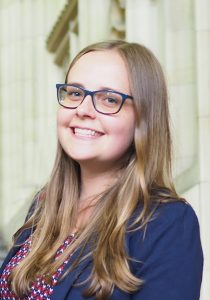Stephen Martineau summarizes a recent case at the Court of Protection involving hoarding behaviour: AC and GC (Capacity: Hoarding: Best Interests) [2022] EWCOP 39. With thanks to Neil Allen for alerting us to the judgment via this Tweet.
The NIHR Policy Research Unit in Health and Social Care Workforce, where Stephen is Research Fellow, recently completed a study of self-neglect and hoarding behaviour among older people and it has just commenced another study on the commissioning of decluttering services by local authorities (this study is recruiting participants). Both projects are funded by the NIHR School for Social Care Research.
We are holding an online seminar engaging legal and psychological perspectives on hoarding: Mon 28 Nov 2022, 10am-11.30am. (2,294 words)
Introduction
This case concerned AC, a 92-year-old woman. She had been sharing her home (which she owned) with her son, GC, since her husband’s death eleven years earlier. GC had given up his job and had become his mother’s main carer. In February 2022 she was taken to hospital by emergency services and in March was discharged from hospital to a care home as a result of a best interests decision. There had been concerns about the unsanitary conditions at her home and their potential impact on her health and welfare.
The question to be decided in summer 2022 was whether AC should now return home for a trial period, receiving a package of care there. It was her wish to return home, while the local authority thought she should remain at the care home. We learn from this judgment (August 2022) that both AC and her son were diagnosed by a clinical psychologist, Professor Salkovskis, as having a hoarding disorder (among other conditions), and also that both have their own social worker.
The judge, HHJ Clayton, had already been managing the case for two years: there had been earlier applications to the Court of Protection by the local authority (and the judgment alludes to yet earlier proceedings that had ended in 2018). In August 2020, the local authority had applied for AC to be moved to a respite placement while the poor conditions at her property were addressed. More recently, it had sought an order that her son leave the property for the same reason.
Much of the difficulty of the case arose because of concerns around GC’s mental health. If AC were to return home, it was proposed that he would be the ‘second carer’ (after the care agency). Continue reading
